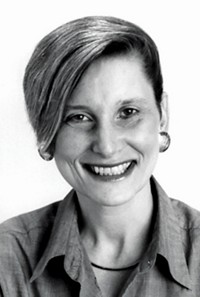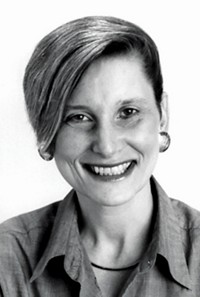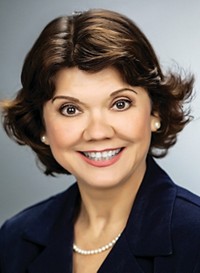Advertisement
Grab your lab coat. Let's get started
Welcome!
Welcome!
Create an account below to get 6 C&EN articles per month, receive newsletters and more - all free.
It seems this is your first time logging in online. Please enter the following information to continue.
As an ACS member you automatically get access to this site. All we need is few more details to create your reading experience.
Not you? Sign in with a different account.
Not you? Sign in with a different account.
ERROR 1
ERROR 1
ERROR 2
ERROR 2
ERROR 2
ERROR 2
ERROR 2
Password and Confirm password must match.
If you have an ACS member number, please enter it here so we can link this account to your membership. (optional)
ERROR 2
ACS values your privacy. By submitting your information, you are gaining access to C&EN and subscribing to our weekly newsletter. We use the information you provide to make your reading experience better, and we will never sell your data to third party members.
Policy
ACS and the Great Dream Machine
by MADELEINE JACOBS, ACS EXECUTIVE DIRECTOR AND CEO
June 13, 2005
| A version of this story appeared in
Volume 83, Issue 24
With his new book, "The World Is Flat: A Brief History of the Twenty-First Century," New York Times writer Thomas L. Friedman has brought newfound energy to the crucial debate on American science, technology, and competitiveness.
Friedman clearly explains how new technologies such as the Web are enabling India, China, and other nations to compete with--or out-compete--the U.S., Japan, and Europe. Competition is no longer limited to the manufacturing sector; there's competition in R&D and, more important, for the best minds.
Recent C&EN stories and editorials about China frame the importance of the U.S. competitive dilemma (C&EN, April 25, page 3; May 2, page 3; May 16, page 47; May 23, pages 3, 11). As a member of the American Chemical Society delegation to China in April, I felt the same sense of urgency that I felt growing up in the U.S. after the 1957 Sputnik launch. China is creating a "Golden Age of Science," much as the U.S. did by investing billions of dollars in its scientific and technology infrastructure. China is enticing its best expatriate Chinese-born scientists and engineers to return and has established science, math, and engineering education as a top priority.
Friedman has sent millions of Americans a wake-up call. We can no longer hold on to the delusion that, even though we've lost the manufacturing sector, the U.S. will remain an R&D leader. The U.S. may continue to be a leader, but it can't expect to be the leader. And unless the U.S. does something about the current situation, we won't even be in the running.
And that's why I'm grateful to Reps. Frank R. Wolf (R-Va.), Sherwood L. Boehlert (R-N.Y.), and Vernon J. Ehlers (R-Mich.), who last month called for an innovation summit on science, math, and engineering. They are also asking for a tripling of federal funding for basic scientific R&D over the next decade. ACS President William Carroll immediately thanked the three for recognizing the "important role that science and technology plays in ensuring the economic security of the U.S." Carroll said ACS will do its part to make this happen.
ACS members ask: "What can ACS do?" They are understandably very concerned about the possibility of a severe decline in U.S. science and technology leadership and the outsourcing of R&D jobs. Here's what ACS cannot do: It cannot stop the globalization of R&D jobs. Friedman's book explains why.
Here's what ACS can do. ACS contributions start with our children. ACS provides internationally acclaimed educational curriculum materials, training workshops, and textbooks for teachers and students at all levels, from kindergarten through college and graduate school. Project SEED and the ACS Scholars Program nurture homegrown and diverse talent.
Members can choose from an array of lifelong learning tools such as short courses, e-learning programs, conferences on emerging areas, and national meetings. Members can also select from a rich array of career programs to help them get and retain jobs. The ACS Publications Division enables scientists to quickly access 33 high-impact, high-quality journals containing the most important research globally in chemistry and related areas. The Chemical Abstracts Division develops the most comprehensive, timely, and accurate electronic chemical and patent databases in the world. CAS disseminates those databases through innovative scientific tools, such as SciFinder and SciFinder Scholar. C&EN keeps members informed about the global chemical enterprise.
Through the Legislative Action Network, ACS helps members effectively transmit their views to legislators on important science and technology policy issues and bills. Congress, in turn, seeks ACS advice on complex science and technology issues.
In these perhaps obvious ways, ACS helps fill the science and technology pipeline and prepares its members and the profession for the global economy. But ACS is also helping U.S. competitiveness in another way, by enabling our members to collaborate and interact with their creative colleagues outside the U.S.
I strongly believe that ACS must continue its long-standing efforts to collaborate with scientific and industrial colleagues in other nations, especially nations like China, India, and South Korea. The April trip to China opened doors to develop appropriate collaborations with our Chinese counterparts. Such collaborations will benefit Americans as much as they will benefit the Chinese.
Friedman writes, "Yes, economic competition in the flat world will be more equal and more intense. We Americans will have to work harder, run faster, and become smarter to make sure we get our share. But let us not underestimate our strengths or the innovation that could explode from the flat world when we really do connect all of the knowledge centers together. On such a flat earth, the most important attribute you can have is creative imagination--the ability to be the first on your block to figure out how all these enabling tools can be put together in new and exciting ways to create products, communities, opportunities, and profits. That has always been America's strength, because America was, and for now still is, the world's greatest dream machine."
As a professional society and as a country, we must rise to this challenge. The ACS federal charter instructs the society how to serve our members, the profession, and our country to ensure that we remain a leader in the global economy, thereby "adding to the material prosperity and happiness of our people." Please send your ideas about how ACS can make this happen to executivedirector@acs.org.
MORE ONLINE
ACS Comments, which appear in C&EN from time to time, are written by society officers and committee chairs. They are available on C&EN Online at http://www.cen-online.org/html/acscomments.html . Comments are archived back to 2000.






Join the conversation
Contact the reporter
Submit a Letter to the Editor for publication
Engage with us on Twitter